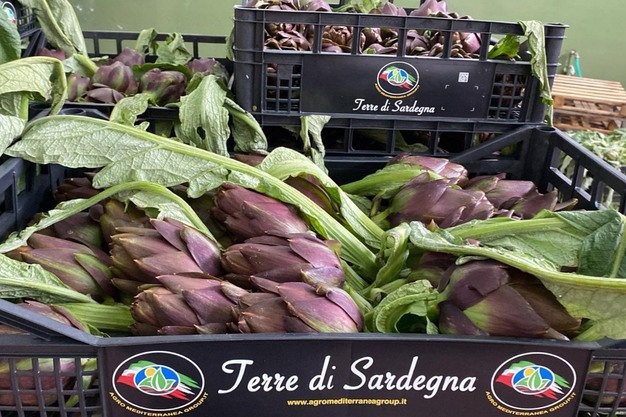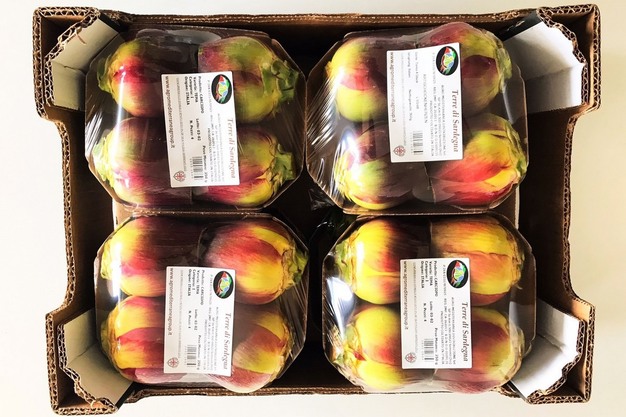"We have seen an increase in orders since last Wednesday after a period of flat calm. This sums up the month of December. I would like to stress that, despite low consumption, we were lucky because production was very low. I am referring to artichokes, but the first 15 days of December were quite slow for almost all horticultural products. No product has seen a peak in consumption," says Filippo Frongia, partner with Andrea Manca of Agro Mediterranea Distribuzione, a company specialising in supplying fruit and vegetable products to large retailers and part of the Agro Mediterranea group.

"Our expectation for January is that there will be no increase in production. January is usually a quiet month after the holidays. Temperatures are already rising and will be more in line with the seasonal average. This will certainly dampen production. If, as is usually the case in the first month of the year, there is low consumption, a surplus of goods, and falling prices, then theoretically January 2025 should be a counter-trend."
This is what happened in November 2024, according to Frongia. "November was very positive compared to the first part of December. Traditionally, it is a month where there is not much commercial satisfaction, but it has been much more positive in terms of volumes and consumption. If there had not been an increase in orders in the week before Christmas, we would have been very concerned," he continues.
"In our case, we were not in a position to generate price pressure in our usual way. In fact, we stuck to the price lists that were in place the week before. The only variation that occurred, and which is somewhat symptomatic of the free sale, is a slight price increase for the traditional channels, i.e. wholesalers and external warehouses, compared to large organised distribution."
Frongia also highlights the fact that, historically, the current prices of artichokes marketed by Agro Mediterranea do not reflect the volumes sold. "There has been a noticeable increase in prices, but it is not in line and not proportional to the quantities available. In my opinion, prices should be at least 25% higher."

"Seventy per cent of what we sell is cleaned and peeled, while the remaining percentage is fresh artichokes. This is a symptom of the ongoing change in consumption patterns, which in principle will lead to a decline in sales over the next three to four years. This is a fact. The consumption of cleaned artichokes, as opposed to freshly harvested artichokes, is increasing. The problem is that buyers often do not recognise the added value of this label and consider it to be a second-rate product on a tray when it is not. Eighty per cent of our deliveries are exactly the same as those for the fresh market."
The campaign is not over yet. "We are at the halfway point, we still have 4-5 months ahead of us, which is crucial for the artichoke as consumption tends to increase in the spring. We are confident about the rest of the season," concludes Frongia.
For more information:
 Andrea Manca - sales manager
Andrea Manca - sales manager
Tel.: +39 342 3390390
Agro Mediterranea Distribuzione Srl
09027 Serrenti (SU) - Italy
[email protected]
www.agromed.it
